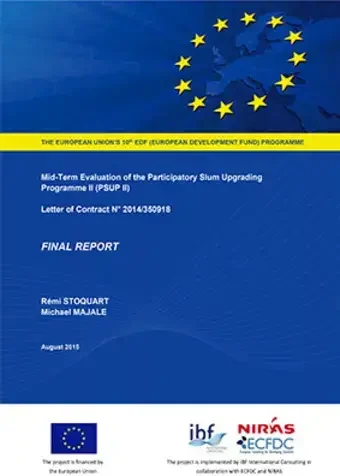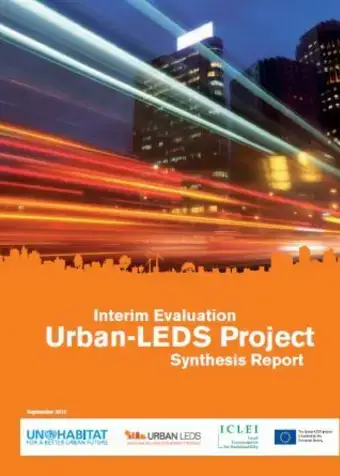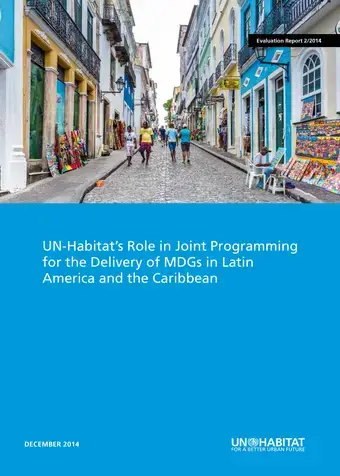Evaluation of the Municipal Spatial Planning Support Programme MuSPP Phase 3, July 2014
 This evaluation was carried out during the third phase of the Municipal Spatial Planning Support Programme (MuSPP). The programme as a whole started 8 years ago in 2005 and phase 3 in 2011.
This evaluation was carried out during the third phase of the Municipal Spatial Planning Support Programme (MuSPP). The programme as a whole started 8 years ago in 2005 and phase 3 in 2011.
The intention is to assess the progress towards project objectives, to look beyond the current project and to give the opportunity to adjust the work of the final months so as to maximize the sustainability of impact.
Evaluation of the UN-Habitat's Strengthened Programme Review Mechanism December 2009-September 2011
 In late 2011 the senior management of the United Nations Human Settlement Programme (UN-HABITAT) initiated an evaluation of the programme Review Mechanism for the period December 2009 to September 2001. 'Strengthening of the Programme Review Mechanism was identified as one of the strategic 'quick wins' for the kick-start phase of the UN-Habitat Medium-Term Strategic and Institutional Plan (MTSIP).
In late 2011 the senior management of the United Nations Human Settlement Programme (UN-HABITAT) initiated an evaluation of the programme Review Mechanism for the period December 2009 to September 2001. 'Strengthening of the Programme Review Mechanism was identified as one of the strategic 'quick wins' for the kick-start phase of the UN-Habitat Medium-Term Strategic and Institutional Plan (MTSIP).



 This report entails the evaluation of the Sustainable Sri Lankan Cities and Urban Governance Support Projects.
This report entails the evaluation of the Sustainable Sri Lankan Cities and Urban Governance Support Projects. This report focuses on the documentation of lessons learnt in the Sustainable Cities Programme in Nigeria.
This report focuses on the documentation of lessons learnt in the Sustainable Cities Programme in Nigeria. The purpose of this evaluation is to assess the extent to which Settlement and Integration of Refugees Programme in Serbia's Expected Results are being achieved, it covers the implementation period from March 2005 - July 2007.
The purpose of this evaluation is to assess the extent to which Settlement and Integration of Refugees Programme in Serbia's Expected Results are being achieved, it covers the implementation period from March 2005 - July 2007.